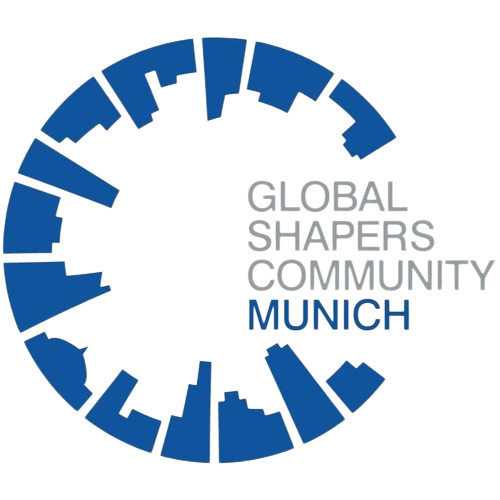In 2022, the Stiftung Pfennigparade approached the Global Shapers Munich with a question: What does the future of inclusion companies look like in an increasingly digitalised and automated society? The munich-based Stiftung Pfennigparade offers education, housing, and workplaces for people with disabilities through its inclusion company. However recently, the foundation is facing increasing competition from software that automates their services, like document classification, despite their higher accuracy due to the special skills of their foundation's teams. This was the starting point for the Social AI Clinic project, where a team of volunteers from the Global Shapers Munich worked with stakeholders in the region, such as the TUM Think Tank, on challenges around responsible AI technology. In September 2023, they organised a jam session together with TUM Think Tank to explore the topic of GenAI & inclusion. Theresa has taken some time to tell us about it.
WHAT WAS THE MAIN GOAL OF THE EVENT?
Everyone is talking about GenAI, but when it comes to the workplace, the narrative is often a negative one in the sense of "our jobs are at stake" or "will we as humans become redundant?” Although GenAI will undoubtedly bring disruptive change, we decided to also look at this technology positively in the context of the workplace and ask ourselves: are there people in the workplace who could benefit from such technology, for example in the context of inclusion? The goal was to develop initial ideas for GenAI applications that answer this question.
WHAT DID YOU THINK THE RESULT WOULD BE?
The main goal of the jam session was to get people from various backgrounds into one room to start a conversation on this important topic. Even though it is a complex topic we also wanted to break it down and derive tangible future applications. These should help neurodivergent people during their working day. Overall, results from this jam session should be built upon in future follow-up events.
DID THE IMPACT HAPPEN AS EXPECTED?
During the session, we indeed came up with ideas. In short, we approached the question in three steps. First, we developed categories of the typical tasks performed in office jobs. Then we collected challenges that neurodiverse people might face in the current standard office concepts. In a third step, we prioritised these challenges and developed an application concept for the most urgent problem perceived by the group.
For the first step, we have divided the relevant activities and components in the office workplace into four key areas: Three areas that relate to the tasks that need to be done in a typical office workplace, these include: Communication, brainstorming and implementation of concepts, e.g. using Excel, Word or video programs. In addition to the core activities, we identified the workplace environment, such as user interfaces, as the fourth important component. We then mapped possible challenges to these four areas, such as interpreting non-verbal information in meetings or structuring and prioritising abstract tasks. The latter area was later selected by the participants as the most important challenge. For this challenge, two technical solutions using a "Social GenAI Canvas". were developed. The goal of the canvas was to 1) clearly state the problem to be solved, 2) detail the advantages for the individual, the company and the society and 3) break down the individual features to be bundled in the application. The canvas also included two questions to critically reflect upon the need of GenAI and the responsibilities to develop such an application.
The first application we came up with promises to break down large tasks to the desired granularity and enter the tasks into a calendar where they are constantly reprioritised. These tasks would be automatically recognised in emails, for example. From there, they can be exported directly into the app, where a first suggestion for the steps to be worked on is generated. If this is still too abstract, the user can further break down each task by pressing a button. Once the desired granularity has been achieved, the user can export the tasks to their calendar via a second button, where the tasks are automatically integrated with the other tasks. The second application proposes to offer a similar service via a personalised chatbot that serves as a reminder for tasks and breaks.
WHAT DID YOU PARTICULARLY ENJOY ABOUT THE EVENT?
The discussions we had in small groups while filling in the Social GenAI Canvas were very stimulating. As we reflected on the risks of these ideas, it also became clear that we need to have more discussion in society about whether we really want and need to uphold our expectations of what individuals are expected to deliver in the workplace.
WHAT WAS PARTICULARLY DIFFICULT ABOUT THE EVENT?
Identifying challenges for neurodiverse people in the workplace and bundling these challenges in a short time definitely was a challenge. We had already sent out preparation material in advance, but would give more information next time.
ANYTHING ELSE YOU WOULD LIKE TO SHARE?
Stay tuned and get in touch if you have ideas about this or want to work with us or the Pfennigparade Foundation!

